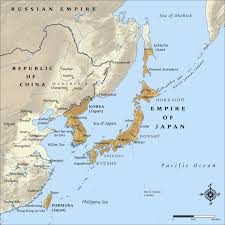Prologue. (Part I)
Prologue: An opportunity for the Han People. (Part I)
"Saving our planet requires you to be ambitious in what you aim, and, equally, in how hard you work to reach your goal." - Ban Ki-moon, Secretary-General of the United Nations.
-----------------------------------------------
Seoul, Republic of Korea. ~ August 15th, 2018."Saving our planet requires you to be ambitious in what you aim, and, equally, in how hard you work to reach your goal." - Ban Ki-moon, Secretary-General of the United Nations.
-----------------------------------------------
People all over the country is happy, after all, it's another year that the Republic of Korea has remained independent. Challenges plagued the past, foreign and domestic enemies tried to destroy the legacy of one of the greatest countries in Asia and even the world but the strength of the korean people was unmatched.
There were numerous challenges on Korea's journey but even those decided to break apart the peninsula were received with the fighting will of the korean people; no one was going to meddle with their destiny again.
Even people from other countries were impressed over the achievements made by Korea since the japanese occupation ended on August 15th, 1945. The country had a tumultuous past and several scars made during her occupation by Imperial Japan, since 1910, only the Second World War and the japanese defeat brought an end to the terrible actions of Japan in the peninsula.

Children holding taegukgi, the Korean national flag.
But it was a matter of time to fully understand what was going on, it took few time for the koreans to comprehend their situation in the new global stage.
However, today (August 15th, 2018) the situation is quite different from the one that was taking place seventy years ago; when the first korean government took power in Seoul since the japanese annexation.

K-Pop group, Red Velvet, during their performance in 2018 Pyeongchang Olympics; one member was absent.
Of course, challenges were ahead but the korean people would eventually prove to be ready.

Map showing the Republic of Korea borders by 2018.
-----------------------------------------------
As I already learned from my previous attempt (Beneath the Sun) I won't try to post daily or rush with updates...yeah I know I didn't updated many times that one...
I'll try to improve quality over quantity. I'm not native english speaker so it's quite hard for me to order sentences properly, I mean, not while having a conversation but narrating in english is quite different for me.
Regarding the style of this AAR, you may know I'll be experimenting and testing different kind of narrations.
I may stick to one or not, however, something I like will be using characters so expect some narratives from 1950 or even 2018. Also, I know someone must be going "Oh no, kpop in an AAR" when he/she saw the Red Velvet picture.
Yeah...I kinda like it, but kpop is more a modern thingy so don't worry, you'll be safe while we are in 1950; unless I choose to narrate something in 2018.
I think that's all for this moment, I hope you enjoy this journey with our little country. ^^
(Eventually, my main goal would be to reach the 21st Century but I may or may not be able to do so)
I'll try my best.
EDIT::: If you wanted to know the meaning of the title::
Rome was not made overnight.
Mild interactivity approved by Mr.C on September 14th, 2021.
Last edited:
- 2

























